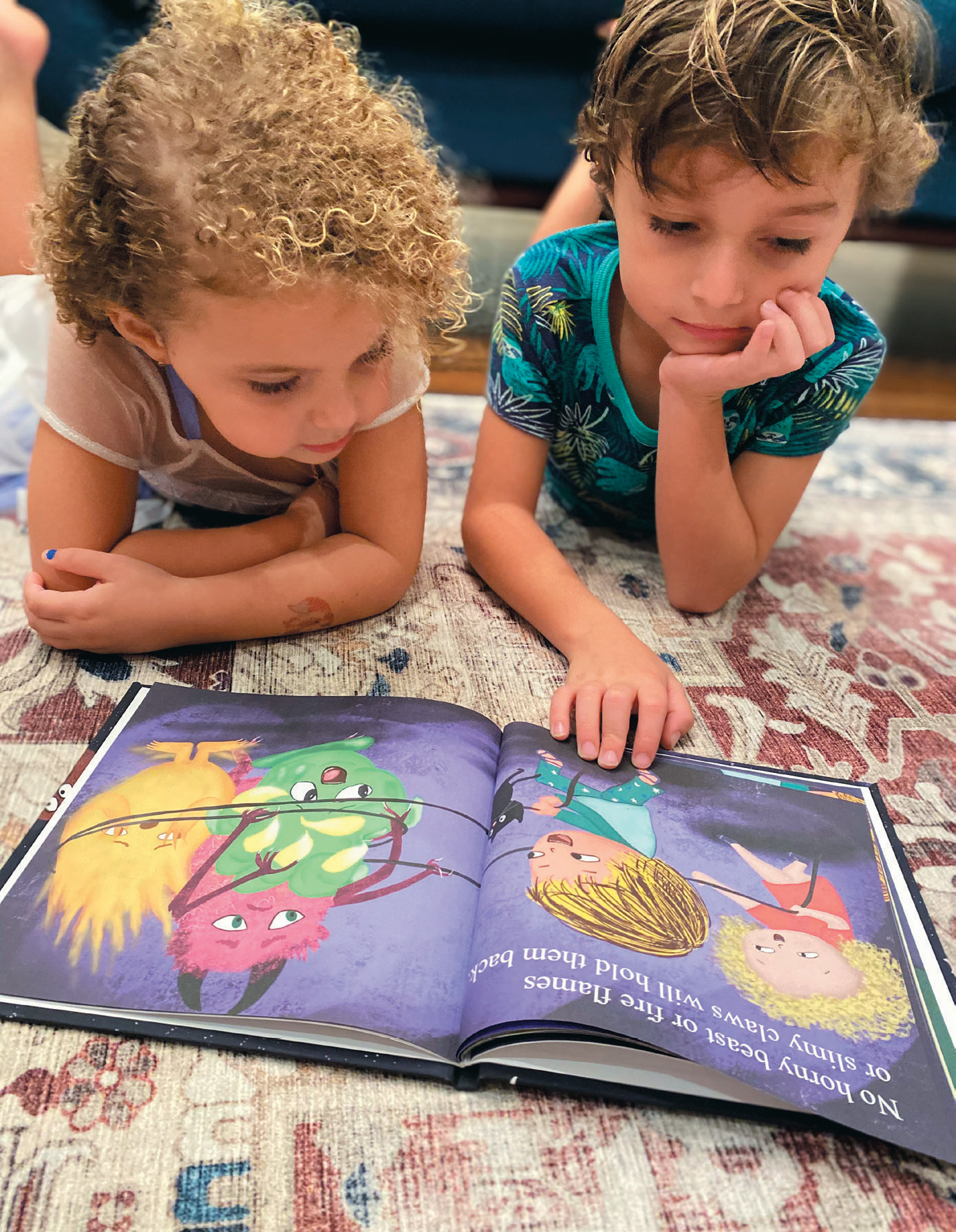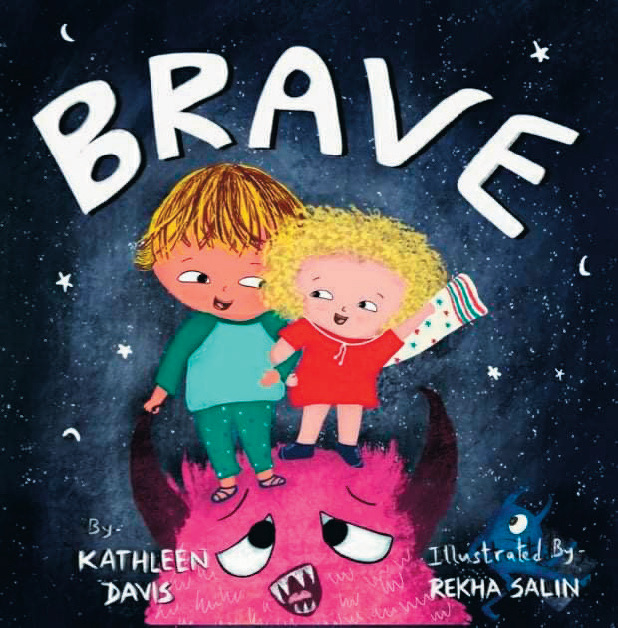Bedtime in our house is always the best and worst part of the night. The day is wrapping up, quiet time is beginning and the expectation of not having to take care of anyone else for the rest of the evening is quickly approaching. Conversely, bedtime is always a never-ending routine of brushing teeth, refilling waters, reading bedtime stories, saying prayers and, finally, the recurring pitter-patter of feet that have come out once again for “a very important reason.” It is often too easy to pull something out of this cycle to shorten the process. “You don’t want to brush your teeth tonight? Fine, but tonight only.” “You already went potty when you took a bath; you are good on that!” And finally, “It’s just too late to read any books tonight; sorry!” All too often this third, and possibly most important, part of our day gets skipped.
To say that I understand the value and impact of literature in a child’s life is an understatement. I have a master’s in education, taught for 10 years and then decided to switch career paths and delve into writing. I currently write children’s books, along with a blog. “BRAVE” is my first book, and it is based on my children’s fears at night. My kids were not sleeping well and were consistently waking me up through the night. I could not find a book that was age-appropriate, did not create more fears in them and reinforced that they were safe and loved. Six months later, I self-published my book. I know how important books are in a child’s development. I also know that sometimes you just need to put your kids to bed without one more thing to do. Parenting is hard work.
When I was a teacher, I specialized in reading and writing, finding literary elements of value that were relatable and teachable, helping children learn strategies that could be transferred to better comprehending any text and conveying these elements into their writing. It was no coincidence when a struggling reader simultaneously struggled with math. When parents would come in for conferences regarding how they could assist in improving their children’s grades, I would always give them the same answer: “Read aloud to your child.” It didn’t matter if they were in second grade or fifth; the advice remained the same. Telling people how to do things is very easy. Carrying out your own recommendations can be extremely difficult. We all know we need to floss two times a day, but how many of us actually do it?
Reading frequency is also a vital component to this concept. Of course, “some” is better than “none.” However, just like anything good, the more we do it, the better. From literacyproj.org, the website for The Literacy Project, a group working to eliminate the literacy gap of emerging second-graders: “According to the Department of Education, the more students read or are read to for fun on their own time and at home, the higher their reading scores, generally.” What does this mean for parents? The more we read to our kids, the better readers they will be. “Books contain many words that children are unlikely to encounter frequently in spoken language,” according to literacyproj.org. “Books for kids actually contain 50 percent more words that children are unlikely to encounter frequently than regular conversation, TV or radio.”
And all of this starts at a very young age. “Cognitive processes develop rapidly in the first few years of life. In fact, by age 3, roughly 85 percent of the brain is developed,” says The Liter acy Project website. In other words, the one activity that takes us 5-10 minutes of our day quite possibly embodies the quintessential learning experience for children, providing them with exposure to new vocabulary, a fluent reading example and essentially equipping them with the reading tools they will need later in life.
Having a read-aloud, whether it is before bedtime or in the middle of playtime, is not only about cognitive growth. As a mother of two (with one more on the way), reading to my children is also about winding down, bonding and connecting. Almost every time I read to my children, I find that there is something important that we can discuss — either an issue the characters in the text are facing or a connection from the book to our life. There could be a theme that is important and relevant to our day. The book might cheer them up, spark curiosity or simply be a sweet holiday read that brings joy.
The times when I view reading as a chore (which are more frequent than not) are when our precious time is not really optimized. I rush through the book, reading at an auctioneer’s speed. I do not allow for questions, we do not take in the illustrations and we are certainly not forming any connections to our daily life. Are the kids still getting exposure to vocabulary and fluent reading? Yes. Could I take 90 seconds more and make it an experience they will enjoy? Yes.
My kids never ask for me to read to them (unless it is mere seconds before bed and they are delaying the inevitable). The responsibility of carving out enough time to possibly create any kind of meaningful reading is up to me. It’s a matter of habit forming. It can be a pain when you feel done for the day and exhausted, but it can also be a time that is filled with love, snuggles and (without them even knowing) cognitive growth.
My advice to parents with children who are interested in improving their children’s reading ability would be to start small. Anything is better than nothing. Try to start with short books that interest both you and your children. Aim for two to three read-alouds per week, whether at night, waiting for the dentist, sitting in car line or in between commercials during the football game. Audio books are just as good as traditional texts, so plug in your phone, turn up the volume and don’t hesitate to push pause if a teachable moment occurs. Just get started! You will find that like any good thing, the more you do it, the more you will continue to do it.



